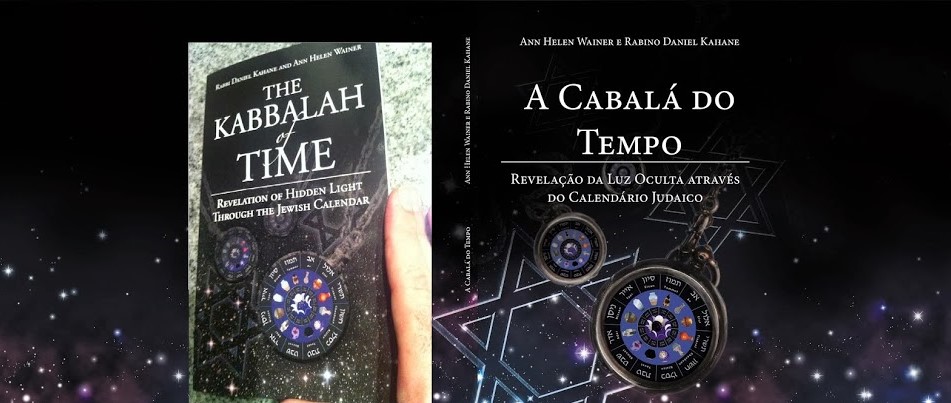STORY OF CHANNAH: 2. There is none as
holy as the Lord, For there is none besides You; And there is no rock like our
God.
QUALITY OF THOSE THAT STUDY TORAH FOR ITS OWN SAKE: The Torah uplifts him
PROVERBS: Chapter 30
TZADIKIM: Divrei Chaim of Sanz (25th of Nissan) and Rabbi Moshe Pallier of Kobrin (29th of Nissan)
Week 30
is the last week of Nissan. It includes the yahrzeit of Yehoshuah and Yom
HaShoah, Holocaust Remembrance Day. In the verse of the story of Channah
for this week, she exclaims, “2. There is none as holy as the Lord, For there
is none besides You; And there is no rock (Tzur)
like our G-d.” Rashi cites the Talmud
in Berachot, stating, “There is no
artisan (Tzayar) like our G-d, Who
makes a form within a form (Ber. 10a).” Through pregnancy, G-d shapes and gives
life to each one of us. In a similar way, Yehoshua also was “formed” by Hashem
through Moshe. Yehoshua is called the son of “Nun,” which is in fact a
reference to Moshe. A person’s teacher is like the one who bore him.
Regarding
Channah’s verse, the Talmud in Berachot further
states as follows:
R. Judah b. Menasiah said: Read
not, There is none bilteka, but, There is none lebalotheka [to consume Thee].
For the nature of flesh and blood is not like that of the Holy One, blessed be
He. It is the nature of flesh and blood to be outlived by its works, but the
Holy One, blessed be He, outlives His works.
These
words are very reminiscent of the Holocaust, when, unfortunately, so many of us
were so brutally consumed.
This
week’s Pirkei Avot quality is that the Torah “uplifts him.” Few have felt so
uplifted as Channah with the birth of her child, and this feeling is very much
reflected in the verses above. This quality of being uplifted by the Torah is
certainly true of Yehoshuah as well. Yehoshua was not inherently smarter than
everyone else, yet he worked on himself to the point that he was eventually
chosen as Moshe’s successor because of his dedication to the Torah.[1] The Torah that uplifted so many of our communities after the immense loss and trauma of the Holocaust.
The
very beginning of Chapter 28 of the Book of Proverbs addresses the
characteristics of being like Joshua, completely dedicated to the Torah humbly
accepting its transmission:
2.
For I am more boorish than any man, neither do I have man's understanding.
3.
Neither have I learned wisdom, nor do I know the knowledge of the holy ones.:
4.
Who ascended to heaven and descended? Who gathered wind in his fists? Who
wrapped the waters in a garment? Who established all the ends of the earth?
What is his name and what is the name of his son, if you know?
5.
Every word of God is refined; He is a shield for all who take refuge in Him.
6. Do
not add to His words, lest He prove to you, and you be found a liar.
The
second part of the chapter speaks of a generation
gone awry, which seems very related to the events of the Holocaust:
8.
Distance falsehood and the lying word from me; give me neither poverty nor
wealth; provide me my allotted bread,
9.
lest I become sated and deny, and I say, "Who is the Lord?" And lest
I become impoverished and steal, and take hold of the name of my God.
10.
Do not inform on a slave to his master, lest he curse you, and you be found
guilty.
11. A
generation that curses its father and does not bless its mother.
12. A
generation that is pure in its eyes, but is not cleansed of its filth.
13. A
generation-how lofty are its eyes! And its eyelids are raised.
14. A
generation whose teeth are [like] swords, and its molars are [like] knives, to
devour the poor of the land and the needy of men.
15.
The leech has two daughters, "Give" and "Give." There are
three that are not sated, and four that do not say, "Enough!"
16.
The grave, the confined womb, and the earth, which is not sated with water, and
fire, which does not say, "Enough!"
17.
The eye that mocks the father and despises the mother's wrinkles-may the ravens
of the valley pick it out, and the young eagles devour it.
This
week contains the yahrzeits of the founders
of two important Chassidic dynasties: Rabbi Chaim Halberstam of Sanz and Rabbi
Moshe Pallier of Kobrin. From Ascent.org:
Rabbi
Chaim Halberstam of Sanz [1793 - 25 Nissan 1876] was the first Rebbe of the
Sanz-Klausenberg dynasty. He is famous for his extraordinary dedication to the
mitzvah of tzedaka and also as a renowned Torah scholar; his voluminous and
wide-ranging writings were all published under the title Divrei Chaim. His
eldest son founded the famous Sanzer synagogue in Tsfat in the middle 1800's.
[The dynasties of Bobov and Klausenberg also descend from him]
Rabbi
Moshe Pallier of Kobrin [1784 - 29 Nisan 1858] was a close follower of the
Rebbe, R. Mordechai of Lechovitch and afterwards of his son, R. Noach. In 1833
he became the first Rebbe of the Kobrin dynasty, with thousands of chassidim,
many of whom subsequently moved to Eretz Yisroel. His teachings are collected
in Imros Taharos.[2]
Other
yahrzeits this week include Rabbi Nachman of Tulchin (student of Rabbi Nosson
of Breslov, 26th of Nissan),
Rabbi Moshe Teitelbaum (Satmar Rebbe, 26th of Nissan), Rabbi Aharon HaKohen Rosenfeld (Pinsk-Karliner Rebbe, 28th
of Nissan), and Rabbi Mordechai Shalom
Yosef Friedman (Sadigerer Rebbe, 29th of Nissan).
